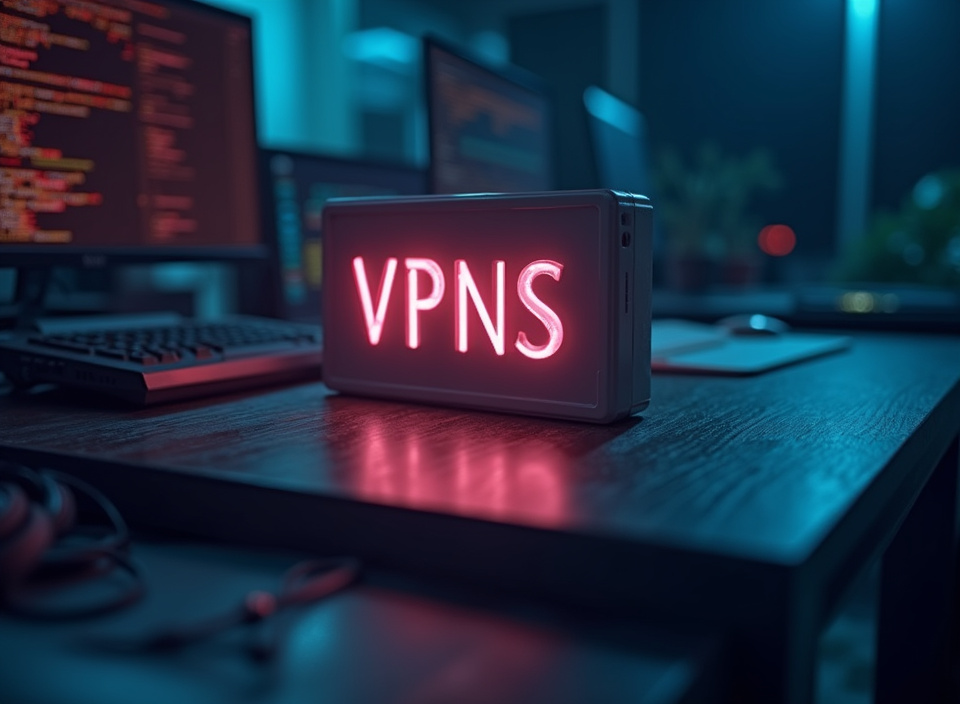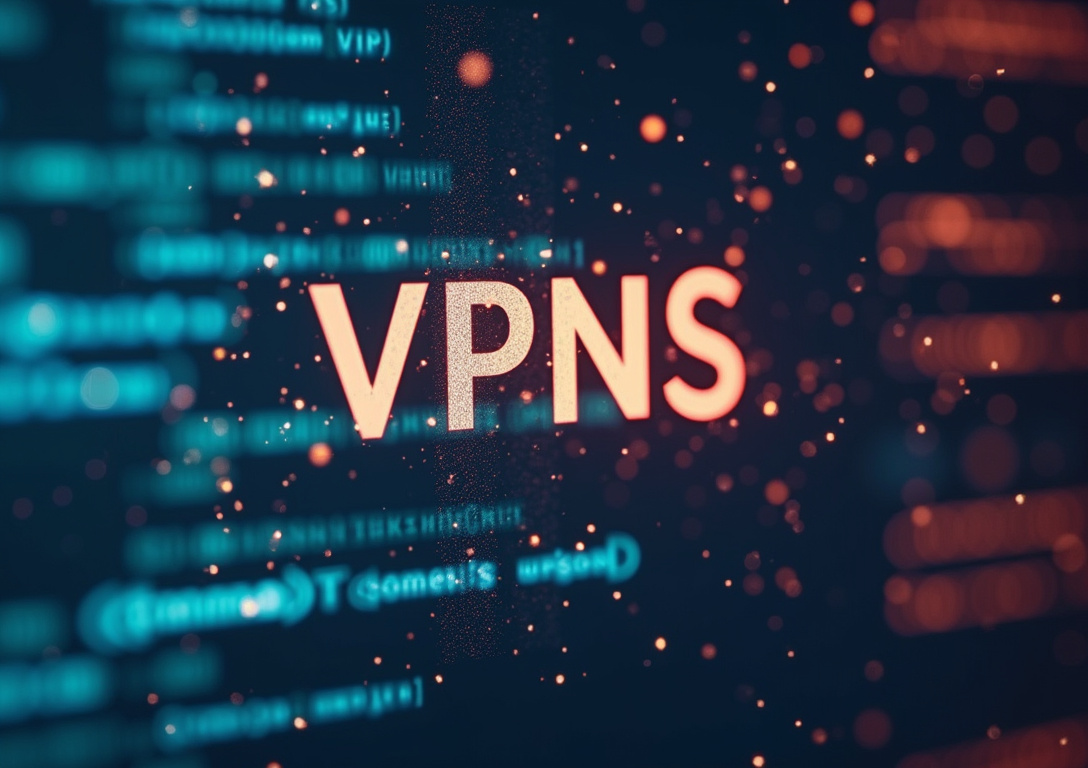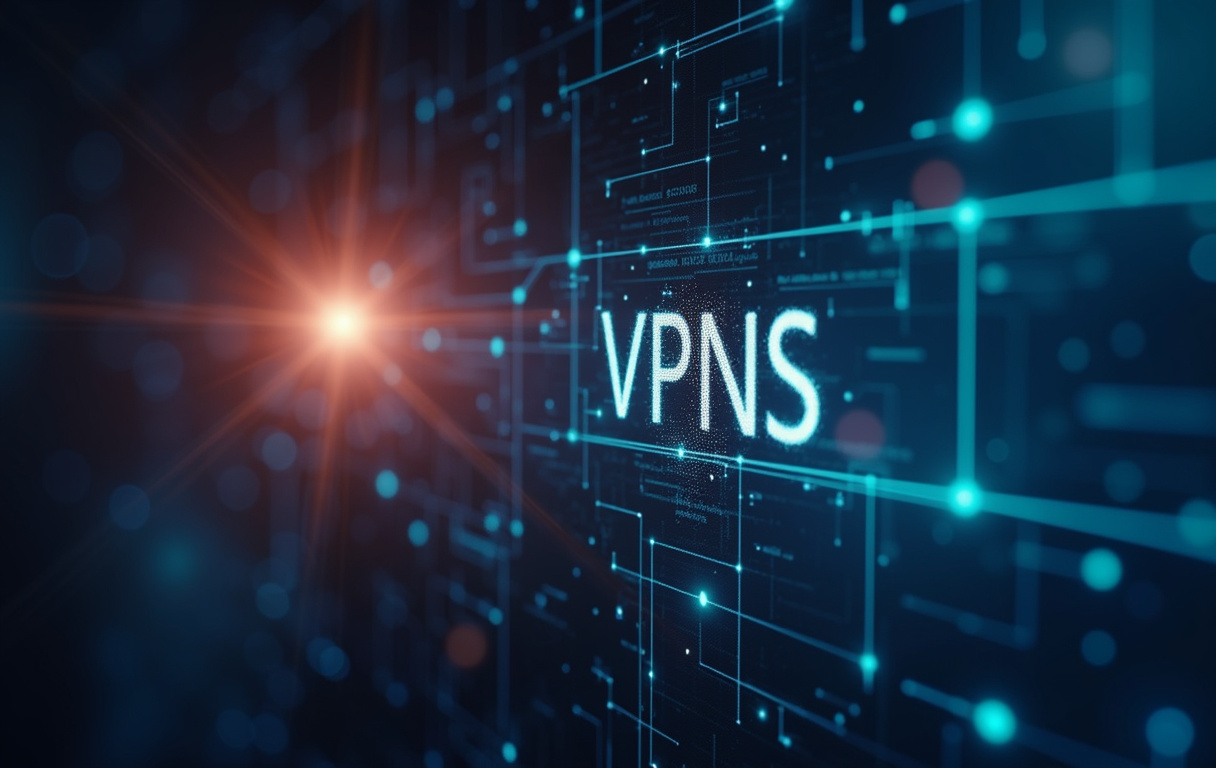VPNs for Open Source Projects: Protecting Collaborative Efforts

Table of Contents
Open source projects represent the pinnacle of collaborative innovation, fostering a dynamic environment where developers from across the globe unite to build remarkable software and tools. This decentralized and open nature, however, also introduces unique security vulnerabilities. The reliance on diverse networks, constant code exchange, and distributed team interaction makes these projects prime targets for malicious actors seeking to compromise 'code integrity,' exploit vulnerabilities, steal sensitive data, and disrupt the workflow.
To counteract these threats, implementing a robust security strategy is paramount, and a Virtual Private Network (VPN) emerges as a crucial tool in fortifying the defenses of open source projects. This article explores the multifaceted benefits of employing an 'open source VPN' solution or a tailored commercial VPN, designed specifically for open source teams. The focus will be on how these VPNs bolster 'collaborative security,' guarantee the sanctity of 'code integrity,' facilitate secure 'team interaction,' and function as an indispensable asset—a practical 'VPN for developers'.
Open source projects, by their very nature, are transparent and accessible, which encourages community involvement and rapid development. However, this openness also creates avenues for malicious actors to inject vulnerabilities, steal proprietary algorithms (if any exist within the project), or compromise user data. Protecting the code, safeguarding communication channels, and ensuring the individual security of developers is, therefore, critical for the long-term viability and success of these projects.
A proactive and layered security approach, with a VPN serving as a critical component, is no longer optional, but rather a necessity for preserving the integrity and advancement of open source innovation in a secure manner. Central to this approach is acknowledging the dangers posed by insecure networks. Developers frequently work remotely, utilizing public Wi-Fi hotspots in cafes, co-working spaces, or while traveling.
These networks are notoriously vulnerable, often lacking robust security protocols and encryption, making them attractive targets for hackers seeking to intercept sensitive data. A VPN addresses this vulnerability head-on by creating an encrypted tunnel for all internet traffic flowing between a developer's device and a secure VPN server. This encryption transforms data into an unreadable format, rendering it virtually useless to potential eavesdroppers lurking on the same network.
This protection is paramount when transmitting sensitive information such as API keys, login credentials, proprietary algorithms or when accessing internal project resources. In addition to encryption, many VPNs offer IP address masking, providing a greater degree of anonymity. While anonymity isn't the primary driver for using a VPN in open source development, it offers an added layer of protection by obscuring the actual IP address of the developer.
This can prevent targeted attacks or surveillance based on a developer's involvement in a particular project. Furthermore, open source projects often rely on cloud-based services for code repositories, issue tracking, and continuous integration/continuous deployment (CI/CD) pipelines. Using a VPN while interacting with these services protects the data being transmitted between the developer's device and the cloud infrastructure, minimizing the risk of interception or tampering.
Robust security helps cultivate a trusted environment for safe and effective open source collaboration. Open source projects rely on a diverse array of communication tools: messaging apps, code repositories, and video conferencing platforms. By routing traffic through a VPN server, all communications are encrypted and secured, regardless of the platforms used.
This is especially beneficial when sensitive project information is exchanged, or when discussing confidential strategic decisions. The ability to create secure tunnels for communication is important for teams working on sensitive projects in healthcare, finance, or cybersecurity. Neglecting this could have legal and reputational consequences, further underlying the role of VPNs in mitigating risks and guaranteeing compliance within open source projects.
The bedrock of any thriving open source project is the unwavering integrity of its code. Any compromise to this integrity—whether through the injection of malware, unauthorized modifications, or the introduction of malicious commits—can have devastating consequences, severely impacting the project's security, functionality, and overall reputation. A 'VPN for developers' stands as a critical guardian, acting as a secure gateway between developers and the central code repository, playing a crucial role in preventing such attacks.
By encrypting the connection, a VPN significantly raises the barrier for malicious actors attempting to intercept code changes or inject harmful elements, assuring that only authenticated and verified contributions are integrated into the primary codebase. While version control systems are essential for managing code changes effectively, they don't inherently offer complete defense against network-based attacks. A VPN acts as a layer of protection, bolstering the existing security measures by encrypting code during transmission and during synchronization, creating an impenetrable shield surrounding the development pipeline.
This is especially crucial for extensive projects with dispersed contributors, where the risk of developer account compromises increases. A VPN can meticulously control access by restricting it based using approved IP addresses for developers only. By limiting entry solely from validated locations, the project diminishes its attack surface and effectively counters the threat of unauthorized modifications.
It ensures that alterations originate only from secure, trusted networks, safeguarding against external breaches. This enhances confidence among developers and users, proving that its code is protected and trustworthy. The capacity to verify the contributions becomes exceptionally valuable with large open source projects, providing extra assurance when code is merged.
By requiring developers to connect through a VPN with a pre-approved IP address, projects can ensure that only authorized machines are able to submit code changes. This extra validation step mitigates the chance of rogue commits entering the codebase, preserving integrity and security while promoting trust among participants. Many VPNs have logging and auditing, providing extra vigilance.
Moreover, robust authentication, encryption, and integrity-checking are important components of VPN use. Features such as multi-factor authentication (MFA) ensures that only authorized personnel can access sensitive systems and code repositories. Modern encryption and integrity safeguards can guarantee the safe transmission and storage of data, especially during the development process.
By encrypting data during transmission and implementing checksums, VPNs ensure that only authorized machines can access data and that unauthorized persons have no access. Open source VPNs, particularly designed for this purpose, often incorporate advanced features that strengthen the defenses of that code, such as those that involve identifying modifications and mitigating tampering. These enhanced functionalities may encompass tamper-proof logging, intrusion detection systems, and automated security audits that proactively detect and handle possible weaknesses in the development cycle.
The key is prevention as well as mitigation, minimizing security gaps. Regular vulnerability checks, coupled with a prompt response strategy, are crucial to keep code protected from the risks that are constantly evolving. Implementing rigorous code review procedures contributes to code integrity by ensuring that all modifications undergo careful inspection by multiple developers.
Code review process detects subtle errors, preventing problematic code from compromising projects and making critical contribution of the code. A VPN is important in supporting these practices, establishing a safe and controlled environment to make the complete review process more efficient. Robust vulnerability checks, coupled with a prompt response strategy, are crucial to keep code protected from the risks that are constantly evolving.
When combined, all the features become a robust defensive solution.
Secure 'team interaction' forms the backbone of any successful collaborative project, especially within the open source realm where contributors often span geographical boundaries and operate across diverse networks. Open source projects inherently rely on a multitude of communication tools – instant messaging platforms, email threads, video conferencing systems, and shared documentation repositories – to facilitate seamless collaboration. While these platforms foster connectivity and streamline workflows, they also introduce potential vulnerabilities that malicious actors can exploit to eavesdrop on sensitive communications, intercept confidential data, or even impersonate team members.
A VPN addresses these inherent risks head-on by establishing a secure and encrypted communication channel for all data transmitted between team members, regardless of their location or the specific communication tool being utilized. This end-to-end encryption scrambles the data, rendering it unreadable to unauthorized parties who might attempt to intercept or eavesdrop on the communications. As a result, confidential project plans, sensitive design documents, proprietary algorithms (if any), and private discussions remain protected from prying eyes, ensuring that only authorized individuals within the project team can access and decipher the information being shared.
The need for secure 'team interaction' is particularly acute in scenarios where developers are working remotely, utilizing public Wi-Fi networks, or operating from regions with restrictive internet censorship. Public Wi-Fi hotspots, often found in cafes, airports, and co-working spaces, are notoriously insecure, lacking the robust security protocols and encryption mechanisms that protect sensitive data from interception. Similarly, developers residing in countries with strict internet censorship may face government surveillance and censorship, potentially hindering their ability to communicate freely and access essential project resources.
A VPN circumvents these challenges by creating a secure and encrypted tunnel that bypasses censorship restrictions and safeguards communications from government surveillance. By routing all internet traffic through a secure VPN server located in a country with less restrictive internet policies, developers can regain their online freedom and communicate with their team members without fear of censorship or surveillance. VPN that secures communication, can grant remote access to resources by providing a secure connection.
Providing access rights to the development environment. It is very easy to access data by assigning a VPN to the team, so they can handle the project effectively regardless of the location or network. Creating a secure file-sharing environment and ensuring the team is able to connect.
It can also assist with the integration and proper transfer of data across many platforms, promoting collaboration and productivity of development environment and the project. With the adoption of secure communication, the team is better in responding to security risks, and improving development environment to be secure, efficient, and productive. Furthermore, a VPN can be configured to restrict access to project resources based on IP address, allowing project administrators to create a whitelist of approved IP addresses for team members.
This effectively limits access to sensitive project resources, such as code repositories, documentation servers, and internal communication channels, to only authorized individuals from trusted locations. In addition to encryption and access control, a VPN can also provide team members with a sense of anonymity, protecting them from potential targeted attacks or harassment based on their involvement in a particular open source project. While anonymity is not the primary goal of using a VPN, it offers an added layer of protection by obscuring the real IP addresses of team members, making it more difficult for malicious actors to identify and target individuals associated with the project.
Beyond the core security benefits of encryption and access control, a 'VPN for developers' offers a range of additional advantages that can significantly enhance the overall workflow, productivity, and security posture of open source projects. One key advantage is the ability to simulate different geographic locations, allowing developers to test their code in diverse environments and ensure compatibility across various regions. This is particularly crucial for projects that target a global audience or rely on location-specific services or APIs.
By connecting to a VPN server in a different country, developers can effectively mask their actual IP address and appear to be browsing from that location, enabling them to test their code under realistic conditions and identify potential localization issues or compatibility problems. Another significant benefit of using a VPN is the ability to bypass geo-restrictions and access content that may be blocked or censored in certain regions. This can be particularly useful for developers who need to access documentation, libraries, or other resources that are restricted in their current location due to copyright laws, government regulations, or other factors.
By connecting to a VPN server in a country where the content is freely available, developers can circumvent these restrictions and gain access to the resources they need to complete their work. Moreover, a VPN can significantly improve the stability and reliability of internet connections, especially when working from public Wi-Fi networks or regions with unreliable internet infrastructure. By routing traffic through a secure VPN server, developers can bypass network congestion, reduce latency, and minimize the risk of dropped connections, ensuring a more consistent and reliable internet experience.
This is particularly important for tasks such as code compilation, software testing, and video conferencing, which require a stable and high-bandwidth connection. Many VPN providers offer advanced features such as split tunneling, which allows developers to selectively route certain traffic through the VPN while allowing other traffic to bypass it. This can be useful for tasks such as accessing local network resources or streaming media, which do not require the added security of a VPN connection.
By configuring split tunneling, developers can optimize their internet performance and bandwidth usage, while still maintaining the essential security benefits of a VPN connection. As for security measures for a 'VPN for developers', measures such as multi-factor authentication (MFA) guarantees that users are who claim to be. Secondly, data loss protection and access control and threat protection features need to be enforced, to detect and prevent malicious activities.
Open source VPN solutions, in particular, often prioritize transparency and auditability, allowing developers to inspect the underlying code and verify the security claims made by the provider. This transparency fosters trust and confidence among developers, knowing that they can independently verify the security and integrity of the VPN software they are using. Some open source VPN projects even allow community contributions, enabling developers to contribute code, report bugs, and suggest improvements to the VPN software.
This collaborative approach to development further strengthens the security and reliability of the VPN, ensuring that it remains a robust and trustworthy tool for protecting open source projects. VPNs for developers should be scalable and flexible so they can integrate easily with a wide array of operating systems and network configurations. Solutions should work well to allow multiple devices connections with high speed and stability.
Also, user-friendly interfaces are useful to make the platform easily accessible that requires low amounts of specialization within a project. This promotes use among all team members. VPN solutions can provide detailed logging and reporting capabilities, allowing project administrators to monitor VPN usage, track security events, and identify potential threats.
These logs can be used to perform security audits, investigate security incidents, and ensure compliance with relevant security policies and regulations. Also, alerts may be configured to notify administrators of suspicious activity.
In conclusion, the collaborative nature of modern open source projects, while fostering innovation and accelerating development, also introduces a unique set of security challenges. The decentralized structure, reliance on public networks, and constant exchange of code make these projects particularly vulnerable to a range of threats, including code injection, data breaches, and disruptions to team interaction. Addressing these challenges requires a comprehensive and layered security strategy, and a Virtual Private Network (VPN) stands as a vital component in fortifying the defenses of open source projects.
By encrypting internet traffic, controlling access to sensitive resources, and providing a secure communication channel for team members, a 'VPN for developers' plays a crucial role in protecting 'collaborative security,' ensuring 'code integrity,' and fostering secure 'team interaction.' Whether choosing an 'open source VPN' solution or a commercial VPN tailored for open source teams, the benefits are undeniable. From shielding developers working on vulnerable public Wi-Fi networks to mitigating the risks associated with geographically dispersed teams, a VPN provides a critical layer of protection against a wide range of threats. It empowers developers to collaborate securely, share code with confidence, and maintain the integrity of their projects, ensuring that open source innovation continues to thrive without being compromised by malicious actors.
It provides a degree of privacy and anonymity that allows open source developers to explore ideas freely. With a VPN, their network activity is masked, shielding them from unauthorized collection. As the open source landscape continues to evolve and become increasingly critical to modern software development, the importance of VPNs in securing these collaborative efforts will only grow.
Organizations and individuals involved in open source projects should carefully evaluate their security needs and consider implementing a VPN as a fundamental component of their overall security strategy. Implementing a VPN should be a long-term commitment to protect collaborative environments. Through continuous innovation and adaptation, systems can be improved ensuring open source projects operate properly without sacrificing innovation.
Proactive approaches and adaptive solutions will play an integral role in keeping collaborative efforts protected. This commitment requires ongoing investment into security, with open source teams making sure they remain steadfast in defending their shared resources. The use of robust authentication methods can be reinforced by integrating a VPN.
By requiring two-factor authentication when connecting to the VPN and subsequently accessing project resources, it is less likely to be accessed from unauthorized. Using multi-factor authentication is an easy but effective solution to keeping projects safe. It is important to note that using a VPN is just one aspect of the total security strategy, so it cannot be the only measure taken.
It works best when combined with other ways to ensure the security, like code review, penetration testing and employee training. VPNs needs to be properly set up, and correctly followed according to procedures to maximize efficiencies. It is important to maintain regular auditing, and assessments, to make sure that the strategies are still working and are following security procedures.
By taking the above-mentioned precautions, VPN solutions can provide strong, reliable security in maintaining integrity and protection, while encouraging teamwork. Integrating them in the workflows to improve the effectiveness of collaborative environments will protect the projects that are going to define the future for open source. VPN is to guarantee a safe place for developing ideas and solutions for those who are involved in this field.
Stay Updated
Get the latest VPN news, tips, and exclusive deals to your inbox.




